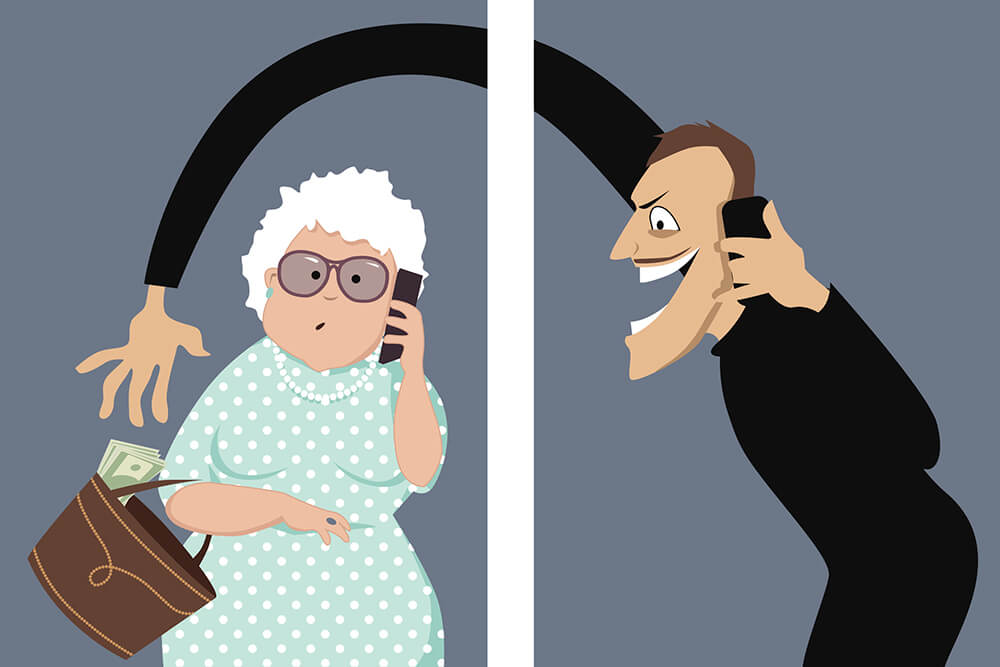Cybersecurity: How to Protect Your Devices and Not Fall Victim to a Scam
April 18, 2023
The Internet can be a vital source of information and connection for older adults. But as with any public space, it is essential that you remain vigilant. In 2021, there were 92,371 instances of older adults falling victim to fraud and other cybersecurity scams. Older adults over the age of 65 are more likely to fall victim to cybersecurity scams because they are often more trusting, have better credit, and are more financially secure. Find out how to protect yourself by following these essential tips on cybersecurity for seniors.
1. Update Your Software
One of the simplest ways to protect yourself from cybersecurity threats is by regularly updating your software. This is important because your operating system can be an easy target for hackers. Luckily, most operating systems have built-in functions that can prevent these malicious attacks. They can even offer regular updates that counters the constantly evolving cyber threats. Failure to update your operating system could result in you losing your personal information, such as your bank account numbers and photos of your grandchildren.
2. Use Strong and Unique Passwords
To do anything online these days, you need a password. However cumbersome it can be having to memorize a random string of letters, numbers, and special characters, this is the best way to prevent hackers from gaining access to your account. Create a strong and unique password, and then write it down in a safe space. By following this tactic, you will be able to prevent hackers from gaining access to your account and doing various unwanted things, such as purchasing items or even posing as you.
3. Enable Two-Factor Authentication
If you want to increase your security two-fold, then you can enable two-factor authentication. Basically, when two-factor authentication is enabled, users provide two forms of identification before they can access the account or system. Typically, the first form of identification will usually be a password or a pin. The second form will be a fingerprint, facial recognition, or a code that is sent to your mobile device. Enabling this simple measure can make it much harder for potential hackers to gain access to your online accounts.
4. Watch Out for Suspicious Emails and Messages
Otherwise known as phishing scams, sometimes people will send emails and text messages with the sole intent to steal your personal information. They might even take your information and then sell it to other scammers. Don’t let this happen to you. Remain vigilant and protect yourself by keeping your devices updated, turning on multi-factor authentication, and backing up your data regularly.
5. Avoid Public Wi-Fi Networks for Sensitive Online Activities
Connecting to public Wi-Fi networks can be convenient and easy, but they aren’t without risks. Sometimes hackers will use sophisticated technology to unlock your personal information, such as bank accounts and credit card numbers. They could then use this information to hack into your various online accounts and even attempt to steal your identity. When you are connected to these public Wi-Fi networks, you can easily prevent this by not filling in any sensitive data, such as passwords, credit card details, social security numbers, and your home address.
6. Install Reputable Anti-Virus Software
As the most underrated cybersecurity tip, some people simply don’t understand the value that you can gain from installing good and reputable anti-virus software. Once the anti-virus software is installed, it will scan an entire device and all its files and folders for any suspicious activity or content. The anti-virus software will then work to protect your system against any attacks made by these foreign intruders.
You can stay protected online by having anti-virus software installed. In addition, you can set it up so that it conducts scheduled live updates on a regular basis. This will ensure that your computer system works optimally to prevent these unwanted intruders from accessing your personal data and other sensitive information.
7. Regularly Backup Important Data
It can be devastating to experience system failures, corrupted data, and accidental data loss. Always back up your data to help prevent your personal information from getting lost permanently. Schedule your computer system to perform regular backups. When an unforeseen situation happens, you will be able to easily retrieve your personal information.
Staying cautious and vigilant on the Internet is vital to enjoying a safe and comfortable living environment. Here at Stonebridge at Montgomery, you will be surrounded by fantastic amenities and friendly team members who are ready to help you 24/7. Call today and learn more about living in our vibrant community at Stonebridge.




